It's crucial to know that students with autism and ADHD need special study strategies. Autism…

Why Autistic People Love Cats: The Connection Explored
Have you ever met someone with autism and noticed how much they love spending time with cats? It’s not just a coincidence. The connection between autistic individuals and cats is real, and it is worth exploring.
So, why do autistic people like cats? Let’s find out through a detailed analysis of the relationship between autism and cats.
Understanding the Connection Between Autism and Cats
For individuals with autism, cats can offer a range of benefits that promote companionship, comfort, and emotional support. Many autistic individuals find that the interaction with cats can have a positive impact on their lives, helping to alleviate stress, anxiety, and feelings of isolation.
One of the key benefits of cat companionship for those with autism is the opportunity for social interaction. Cats can provide a non-judgmental presence that encourages individuals with autism to engage with them, fostering social skills and building empathy.
| Benefits of Cats for Individuals with Autism |
|---|
| Companionship and emotional support |
| Promotes social interaction and builds empathy |
| Reduces stress, anxiety, and feelings of isolation |
Cats can also offer sensory benefits for autistic individuals. The soft fur, gentle purring, and rhythmic movements of cats can have a calming effect, helping to regulate emotions and reduce anxiety.
The role of cats as therapy animals for autism is increasingly recognised. Along with emotional support, cats can provide a calming influence in the lives of autistic individuals, helping to create a peaceful and soothing environment that promotes relaxation and reduces stress levels.
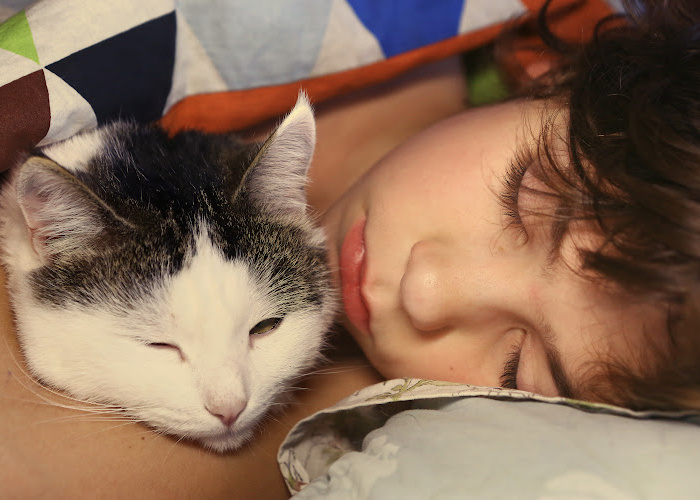
Cats as Therapy Animals for Autism
If you’re someone who has autism, you may find that interacting with cats can have a therapeutic effect on your wellbeing. Many autistic individuals have found cats to be a comforting presence in their lives, providing them with a sense of companionship and support.
As therapy animals, cats can provide a range of sensory benefits that can be particularly helpful for those with autism. The softness of their fur, gentle purring, and rhythmic movements can have a calming effect and help to reduce anxiety.
In addition, the non-judgmental nature of cats can be a valuable source of emotional support. Unlike humans, cats don’t judge or criticize you, which can be a significant relief for those with autism who may struggle with social interactions and feel misunderstood by others.
Cats can also help to improve communication skills in autistic individuals. By interacting with cats, they can learn to communicate in nonverbal ways, which can be a valuable skill in building relationships with others. In addition, the routine and responsibility of caring for a cat can help to instil a sense of structure and routine in daily life.
| Sensory benefits of cats for autistic individuals: |
|---|
| Softness of their fur |
| Gentle purring |
| Rhythmic movements |
The benefits of cats as therapy animals for autism are numerous and can have a profound impact on the lives of those with autism. If you’re someone who has autism, consider spending time with a cat or even adopting one as a companion. You may find that the unique bond between cats and autistic individuals can provide a sense of comfort and support that is hard to find elsewhere.
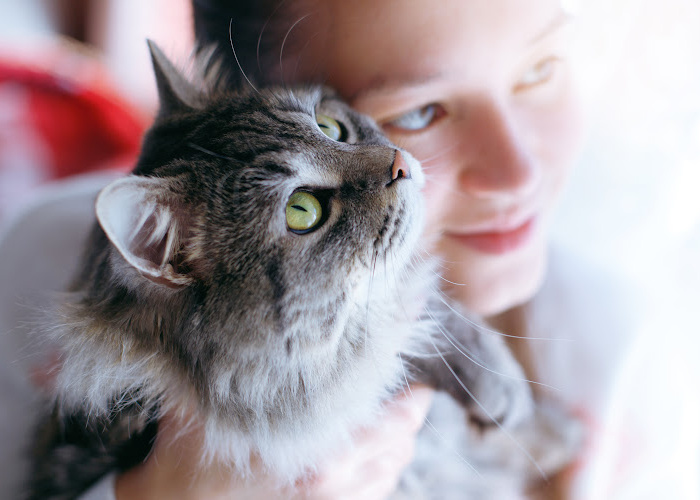
The Calming Effect of Cats on Autism
If you are on the autism spectrum, you may have experienced moments of high anxiety and stress. Living with autism can be overwhelming, and it is important to find coping strategies that work for you. One such strategy is spending time with cats.
The calming effect that cats have on individuals with autism is well documented. The sensory experiences that cats provide, such as their soft fur, gentle purring, and rhythmic movements, can be incredibly soothing. These experiences can help to regulate your emotions and reduce anxiety, creating a peaceful and relaxing environment.
| Benefits of Cats for Individuals with Autism |
|---|
|
Cats offer a non-judgmental and unconditional form of support, which can be particularly important for individuals with autism. Being able to spend time with a cat can provide a sense of companionship that is difficult to find elsewhere. This companionship can have a positive impact on your mental health and well-being.
Overall, it is clear that the calming effect of cats on autism is significant. Spending time with a cat can provide the comfort and support needed to navigate the challenges of living with autism. If you have never considered the benefits of cat companionship, it may be worth exploring as a potential coping strategy.
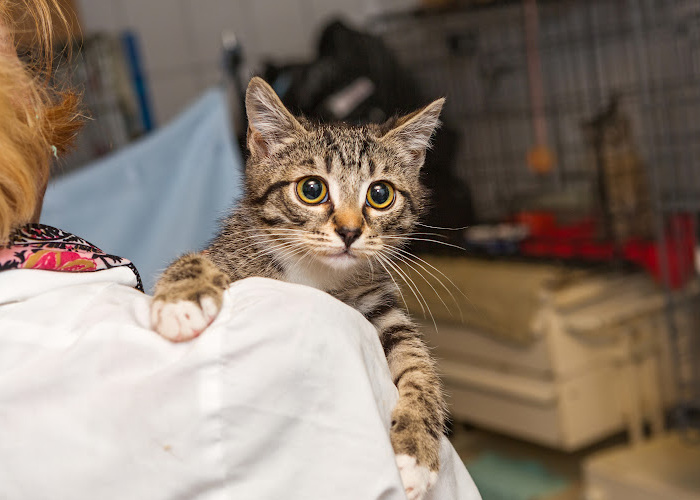
Role of Cats in Supporting Individuals with Autism
If you are an individual with autism, you know the importance of having a companion you can trust and rely on. This is where cats come in. Cats can play a crucial role in supporting individuals with autism, providing them with emotional and physical support, and promoting their overall well-being.
One of the essential roles of cats in supporting individuals with autism is by promoting social interaction. Cats can help individuals with autism to develop social skills and build empathy by providing a non-threatening environment for them to practice social interaction. Interacting with cats can also help individuals with autism to develop their communication skills. This can be particularly useful for individuals who find it difficult to express themselves verbally.
Overall, the role of cats in supporting individuals with autism cannot be underestimated. Their unique combination of companionship, sensory benefits, and social support make them an ideal companion for individuals with autism. So, if you are an individual with autism, and you are considering getting a pet, consider adopting a cat. You may find that they make a significant difference in your life.
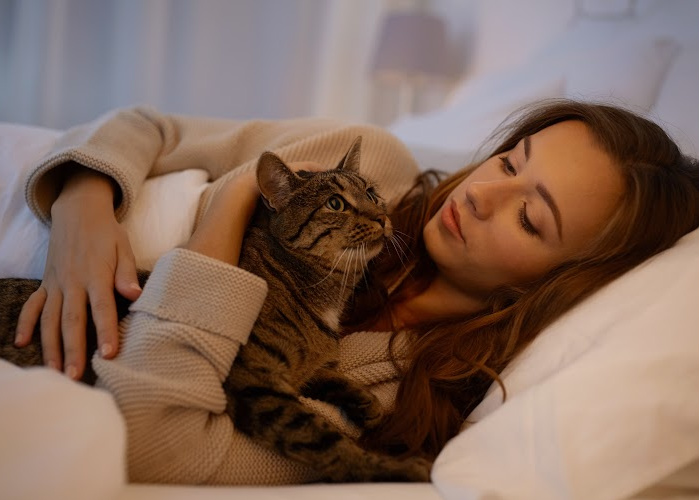
Why Cats Are Popular Among the Autistic Community
If you are an autistic individual, you may have already experienced the special bond that can form between you and a feline friend. There are several reasons why cats are particularly popular among the autistic community, and these are some of the most common:
| Reason | Description |
|---|---|
| Independence | Cats are independent creatures, which means they don’t require constant attention and can entertain themselves. This can be reassuring for autistic individuals who may struggle with social interaction. |
| Non-judgmental nature | Cats are non-judgmental and don’t have the same expectations as humans. They don’t require social interaction in the same way that humans do, which can be a relief for autistic individuals who may find social interaction challenging. |
| Consistency | Cats thrive on routine and consistency, and this can be beneficial for autistic individuals. The predictability of a cat’s behaviour can be reassuring and calming, providing a sense of stability in an unpredictable world. |
The unique qualities of cats make them ideal companions for autistic individuals, providing them with a sense of comfort, security, and acceptance. Cats can help to reduce anxiety, promote relaxation, and provide a source of joy in their lives.
Now that we have explored the qualities and traits of cats that appeal to autistic individuals, you can see why they are such beloved companions. Whether you already have a feline friend or are considering adopting one, cats can provide a valuable source of companionship and support.
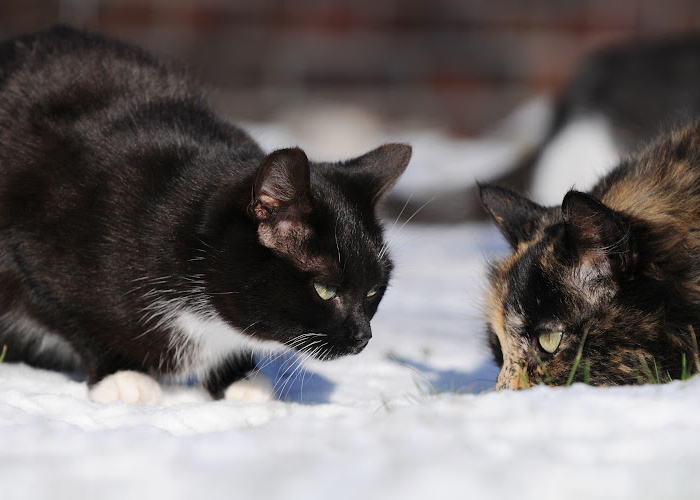
Conclusion
As we’ve explored in this article, the bond between autistic individuals and cats is a remarkable one. The unique relationship they share offers a multitude of benefits to those with autism, including companionship, therapeutic support, and improved communication skills.
The sensory benefits of cats, such as their soft fur and gentle purring, can have a calming effect on autistic individuals, promoting relaxation and reducing stress levels. Cats can also serve as important companions, providing a sense of acceptance and unconditional love.
Furthermore, cats can play a significant role in supporting individuals with autism, promoting social interaction and building empathy. Their independence, non-judgmental nature, and ability to provide a consistent routine are qualities that resonate with autistic individuals.
Overall, it is clear why cats are particularly popular among the autistic community. The connection between autism and cats is a special one, providing comfort, companionship, and therapeutic benefits to individuals with autism.
So, if you’re wondering why autistic people like cats, now you have an insight into the unique relationship they share. If you or a loved one is on the autism spectrum, a cat companion may prove to be a valuable addition to your life.
FAQs
Why do autistic people like cats?
Autistic individuals often find comfort and companionship in cats. Cats can provide a sense of calm and routine, which is important for individuals with autism. Additionally, cats are non-judgmental and offer unconditional love, which can be particularly appealing to autistic individuals.
What is the connection between autism and cats?
The connection between autism and cats is multi-faceted. Cats can provide emotional support, companionship, and a sense of routine for individuals with autism. They can also serve as therapy animals, offering sensory benefits and aiding in social interaction and communication skills.
How do cats benefit individuals with autism?
Cats offer numerous benefits to individuals with autism. They can provide comfort, reduce anxiety, promote relaxation, and encourage social interaction. Additionally, the sensory experiences, such as the feel of their soft fur and the sound of their purring, can have a calming effect on autistic individuals.
Can cats be used as therapy animals for autism?
Yes, cats can be used as therapy animals for autism. Their calming presence, sensory benefits, and ability to promote social interaction make them valuable companions for individuals with autism. Cats can support emotional well-being and help individuals with autism navigate their daily lives with a sense of joy and understanding.
How do cats have a calming effect on autism?
Cats have a natural ability to create a calming environment. Their presence can help reduce stress levels and promote relaxation for individuals with autism. The peaceful and soothing nature of cats can create a sense of stability and comfort, aiding in emotional regulation for autistic individuals.
What is the role of cats in supporting individuals with autism?
Cats play a significant role in supporting individuals with autism. They can promote social interaction, build empathy, and improve communication skills. Cats offer companionship, acceptance, and unconditional love, which are important for autistic individuals in developing relationships and a sense of connection.
Why are cats popular among the autistic community?
Cats are popular among the autistic community for various reasons. Their independence, non-judgmental nature, and ability to provide a consistent routine resonate with autistic individuals. Cats offer a sense of stability and understanding, creating a special bond with autistic individuals.



This Post Has 0 Comments